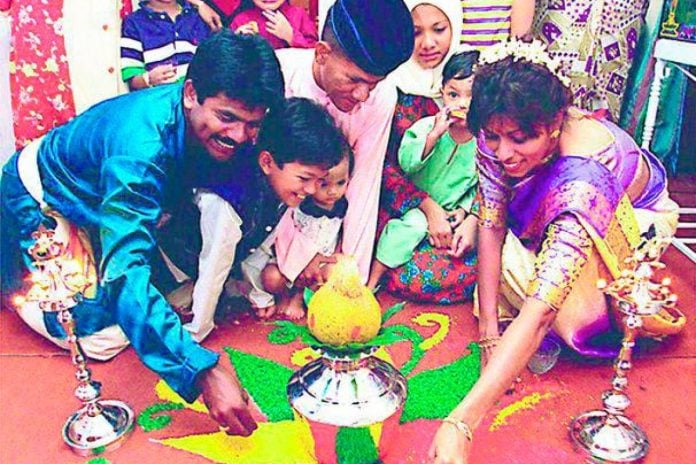REFLECTING on Malaysia’s 68-year journey of nation-building fills me with both joy and sadness.
Our country is a living laboratory of pluralism – multiracial, multireligious and multilingual – a near-perfect mosaic.
Malaysia’s greatest test has always been its greatest gift: our stunning diversity. We are a nation of many faiths, languages and traditions. Yet, this richness has not always protected us from the poisons of division – political polarisation, racial suspicion and economic inequality.
To rise above these challenges, we need a way of living not bound by race, dogma or ideology but rooted in universal virtues that shine through in our everyday lives as Malaysians.
We saw this in acts of compassion, such as during the floods that swept through Johor in early 2023. Malaysians of every background – Malay, Chinese, Indian, Orang Asli – worked side by side to rescue families, cook meals and distribute essentials.
Volunteers formed human chains across muddy terrain, passing along water and supplies. No one stopped to ask the victims about their race.
This echoed the #KitaJagaKita spirit seen during the pandemic, when strangers delivered groceries to those in quarantine, restaurants fed frontline workers and youth groups organised donations for families in need.
Compassion is more than a feeling; it is action. It is the everyday kindness that makes our nation more humane than any policy ever could. We see it in moments of integrity.
While corruption scandals dominate headlines, the real test of character often lies in small, unrecorded acts. The hawker who returns excess change, the civil servant who refuses a bribe, the student who will not cheat on an exam – they all embody the integrity Malaysia needs.
During the pandemic, many small businesses offered “suspended meals”, allowing customers to pay for someone who could not afford one. These acts showed that commerce and morality can go hand-in-hand. Integrity restores trust, and trust is the essential glue that holds a diverse nation together.
We see it in the pursuit of justice. True justice is not only found in courtrooms; it is about whether communities feel heard and treated with dignity. In Penang, interfaith councils work quietly to resolve disputes, ensuring every voice is respected without violence.
In Sabah and Sarawak, many kampungs practise a form of collective justice where the whole community mediates disputes. These traditions remind us that justice is lived, not just legislated. When justice is felt equally by all, divisions lose their power. When it is selective, mistrust festers.
We see it in our humility. To live in Malaysia is to have the humility to learn and respect cultures not our own. In schools during festivals, it is common to see children in baju kurung, cheongsam and veshti sharing food and songs. Humility makes this possible – the ability to celebrate others without losing ourselves.
The spirit of gotong-royong – whether cleaning a mosque, repainting a Chinese temple or preparing for Thaipusam – embodies this. It teaches us that no one is above service and every contribution matters.
We feel it in our gratitude and gratitude does not erase inequality but it opens our eyes to the blessings we take for granted. The ability to walk through Petaling Street, Little India and Kampung Baru in a single afternoon is a cultural privilege few nations enjoy.
During Hari Raya, Deepavali, Chinese New Year, Gawai or Christmas, we open our homes and share food with neighbours of every race and religion. These open houses are more than tradition; they are acts of gratitude that remind us our festivals belong to all of us.
And finally, we see it in our courage – the courage to speak and act against injustice. This is perhaps the hardest virtue: to say no to racism, to call out prejudice and to defend unity when silence feels safer.
University students organising dialogues across ethnic lines, NGOs fighting for stateless children, ordinary Malaysians confronting hate speech online – they practise this courage daily. It is not always dramatic but it is powerful.
As a kampung elder in Negeri Sembilan once said during a dialogue, “If we don’t speak for each other, who will speak for us?”
These grassroots stories show that the virtues of compassion, integrity, justice, humility, gratitude and courage are alive in ordinary Malaysians. They remind us that moral strength does not belong only to leaders or institutions; it lives in the choices we make every day.
This is the essence of a Malaysian humanism: to strive to be good human beings first and, in doing so, to become good Malaysians. If we embrace this spirit, our diversity will not divide us; it will define us.
We have already done remarkably well compared to nations torn apart by bloodshed. Let us continue in this spirit, undeterred by the challenges posed by those who would use division for their own political mileage. Our shared humanity is our greatest strength.
K.T. Maran
Taman Temiang Jaya







